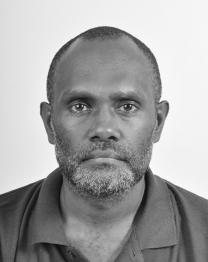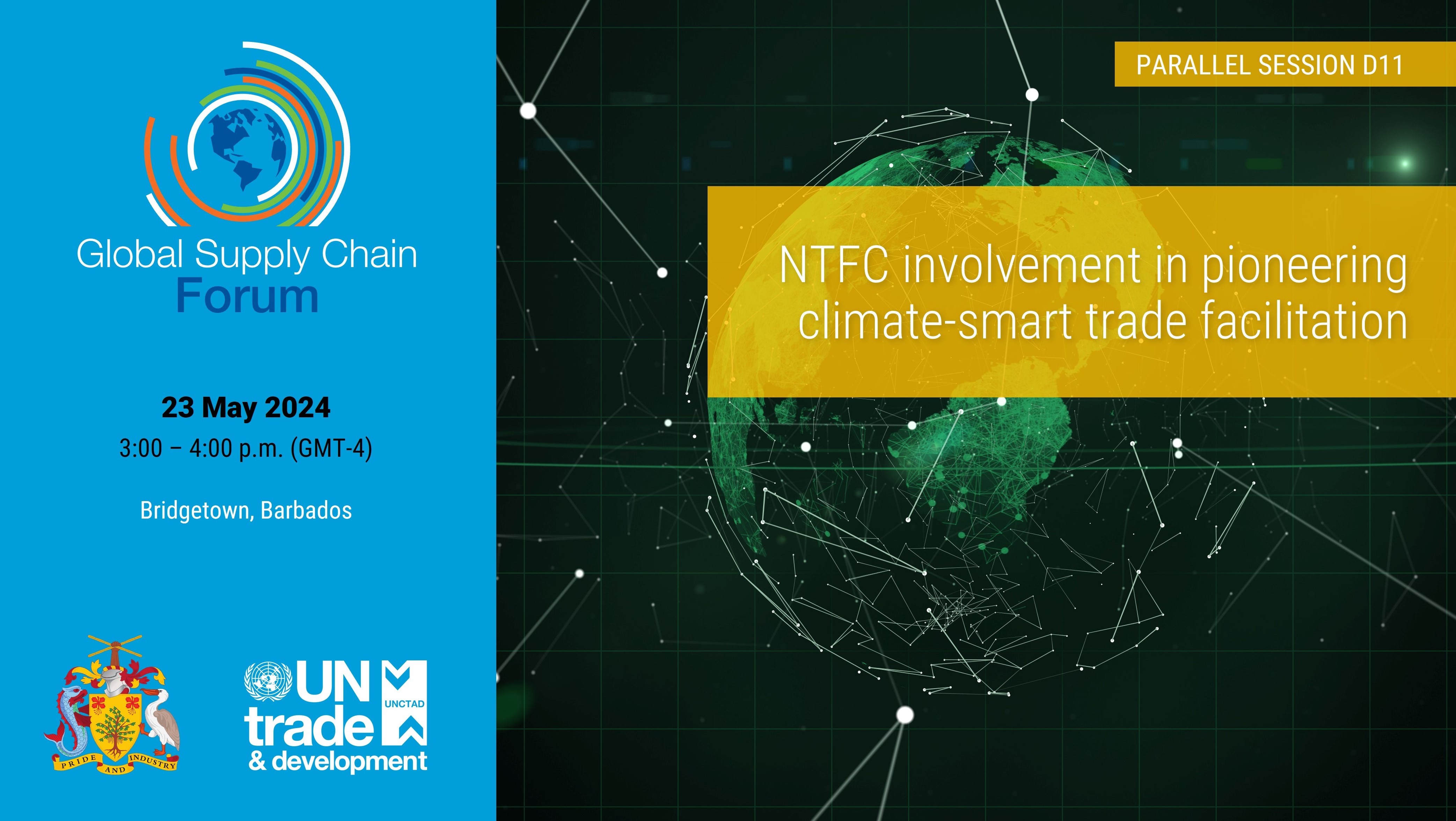
Knowledge Graph of Debate
Session report
Full session report
Experts discuss sustainability in trade and climate action through digital innovation at key session
The session titled "Bridging Sustainability and Trade, Advancing Climate Action Through Digital Innovation," chaired by Matthew Wilson, the Ambassador of Barbados in Geneva to the WTO and the UN, brought together experts from various international organisations to discuss the critical integration of environmental sustainability into trade facilitation practices, with a focus on digital innovation.
The session opened with Wilson emphasising the importance of the discussion, given the carbon-intensive nature of trade and its potential environmental impact. He also highlighted his roles, including chairing the working group of micro, small, and medium-sized enterprises in the WTO, and his past experience as a trade facilitation negotiator.
Poul Hansen from UNCTAD spoke about the relevance of green trade facilitation and the significant contribution of trade and transport to global carbon emissions. He stressed the need for streamlined procedures and digital trade facilitation tools, which can lead to reductions in costs and CO2 emissions. Hansen provided the example of Kenya, where digitalisation and simplification of trade procedures led to a significant reduction in the time and cost required to obtain a plant health certificate, along with a decrease in CO2 emissions.
Ingrid Zabaleta Chaustre from the FAO shared insights into digital innovations in the cotton sector, focusing on the importance of traceability and certification for connecting small actors to markets. She discussed the PLOS Cotton Project, which demonstrated the benefits of digital platforms in providing transparency and traceability, leading to better market access and premium prices for sustainable products.
Victoria Tuomisto from the ITC addressed the role of trade facilitation in the global response to climate change and environmental sustainability. She outlined challenges such as carbon emissions, paper usage, waste at border posts, and illegal trading. Tuomisto proposed solutions including digitalisation, virtual line management systems, carbon-neutral borders, and adherence to multilateral environmental agreements, emphasising the need for measurable impacts.
Stanley Trief from Vanuatu shared the country's experience with the Asycuda-based single window system, which led to significant reductions in paper usage and trips to customs and biosecurity offices. He highlighted the system's role in enforcing environmental and climate change policies and its contribution to disaster resilience.
Kevin Bishop from the UNECE discussed the importance of standardisation in supply chain due diligence, interoperability, and standardised data sets. He mentioned UNECE's role in developing standards and best practice recommendations for trade facilitation and electronic business, as well as promoting sustainable and digital trade practices.
The session concluded with an interactive segment where an audience member from Cambodia Customs raised concerns about the implementation of the WTO TFA and the challenges posed by protectionism and non-tariff barriers. Hansen responded by emphasising regional cooperation and the need for NTFCs to include environmental issues in their strategies.
Overall, the session underscored the importance of integrating sustainability into trade facilitation practices and the potential of digital innovation to advance climate action. The discussions highlighted the need for a collaborative approach to foster innovation and exchange best practices, ultimately paving the way for a sustainable trade agenda.
Session transcript
Matthew Wilson:
So, good afternoon, everyone. Sorry about that loud wake-up call. But, you know, it's the afternoon. I know that energy levels are going down. It's been an intense day. But what we're going to be discussing today is so critically important that I really have to thank you all for being here. So my name is Matthew Wilson. I'm the ambassador of Barberos in Geneva to the WTO and to the UN. I'm also chair of the working group of micro, small, and medium-sized enterprises in the WTO. But more importantly, I am a former trade facilitation negotiator almost a decade ago. So for me, I'm part of this very kind of secret community that you guys have in this room of trade facilitation groupies. I'm a big fan. So welcome to the session with the longest title of all sessions this week, Bridging Sustainability and Trade, Advancing Climate Action Through Digital Innovation. Now, when all of us embarked on making trade flows quicker, easier, and less costly, we didn't immediately know that what we were doing was not just good for trade, it was also good for the environment. The lessons we have learned through digitalization, through cutting down on red tape, through decreasing processes, can have really important, positive impacts on sustainability. We do know that trade can have some negative impacts on sustainability and climate, let's be honest about that. But trade policy is also a very important opportunity to contribute positively to the climate crisis. And that's why today's discussion stands firmly at the intersection of combating climate change and advancing sustainable trade practices. So for the next 45 minutes to an hour, we're going to delve into some of the pressing issues facing us, drawing insights from key sectors like agri-foods and textiles. And our focus will revolve around pivotal topics such as the circular economy, principles and policies, standards for traceability of value chains, and the transformative potential of digitalization in ESG monitoring. So the aim really is to energize and foster collaboration and innovation through the National Trade Facilitation Committees to exchange best practices and to collectively pave the way forward for a sustainable trade agenda. So to kickstart our dialogue, we have some excellent panelists bringing their valuable insights and expertise to the table. We have my friend Poul Hansen, Chief of the Trade Facilitation Section at UNCTAD, who will outline the role of NTFCs for climate action in the global trade agenda. We have Ingrid Zabaleta Chaustre of the FAO, who will provide some insights into digital innovations in the cotton sector, emphasizing practical strategies to facilitate the connection of small actors to regional and global markets. We have my friend and... and former colleague, Victoria Tuomisto from the ITC, who will shed some light on how trade facilitation and specific initiatives fit into the global response to climate change and advancing environmental sustainability. You must be tired, huh? Yeah, you just did that session, yeah. We have Stanley Trief, manager of the Vanuatu Electric Single Window, who will offer perspectives on the transformative power of digital solutions in reducing greenhouse gas emissions and promoting sustainable supply chains. Stanley, you have come the furthest than anyone in this room, so thank you. And then we have our very own Bajan, Kevin Bishop, who is at the United Nations Economic Commission for Europe, which is based in Geneva, and he will discuss standardization needs and the role of international organizations in supporting digital solutions for green trade facilitation. So it's all very heavy stuff, and I hope that the panel will be able to condense it and bring it down into something which is easily digestible and where we can have your active participation and any questions and comments that you may have. So Poul, in three to five minutes, let us know how NTFCs can facilitate the sharing of best practices for climate action across borders and what role international collaboration can play in this process, and also what is the role of international organizations like UNCTAD in supporting these discussions. So over to you, Poul.
Poul Hansen:
Thank you very much, Matthew, and good afternoon. I think we have heard a lot of issues over these two days on what is it that national trade facilitation committees are involved in, can do, and maybe should do in the future. We have not yet heard so much about green trade facilitation. facilitation, or climate-smart trade facilitation, or the impact on the climate of what it is that we are doing when we are facilitating trade. But it is certainly something that is relevant. When we work with national trade facilitation committees, in general it is not something that is on the radar yet, but I think increasingly it must become on the radar. We all know the grim reading of some of the projections for climate impact. By 2040, the average world temperature is set to increase by 1.5 percent. We are already suffering from various phenomenons in climate issues. And of course, trade is very carbon-intensive. Trade in general and transport produces around 23 percent of global emissions, and international transport produces around 7 percent of these emissions. So there is certainly scope for doing something. Global and regional trade volumes are increasing. And the WTO trade facilitation agreement actually itself projects that there will be an increase in global trade, in average an increase if the WTO TFA is implemented, of 15 percent globally, and even more so for some of the developing and least-developed countries, because they stand to gain the most from trade facilitation. And these countries are in many cases already those that are impacted the most by climate impact. So I think here we need to focus on this and get this issue on the agenda. Fortunately, facilitating trade also means streamlining procedures and maybe cutting out those issues that – or at least some of those issues that contribute to climate change. In this respect, it is important to look at streamlining. designing regulatory processes, and that is exactly what the WTO trade facilitation agreement is about, and it is exactly what many of the regional trade facilitation agreements are about. But, of course, these have to be implemented at national level in order to have an impact. So there is certainly a policy argument not only for implementing the trade facilitation agreement in order for increasing trade, increasing the development potential, but also investing in trade facilitation in order to have a positive climate impact, and especially investing in trade facilitation via digitalization, because some of the digitalization experiments and implementation that we have seen around the world have already been measured. And I think when Stanley intervenes, he will be able to give you some of those results and some of those pilots that have been done in Vanuatu, whereby we can see that there is a concrete impact. So what is it we can do with digitalization? It is elimination or reduction of the use of paper. Already that is important. It is elimination or reduction of, for instance, physical trips to various authorities. We all know running from A to C in order to get various clearances done, this can be totally eliminated. It is monitoring the trade and monitoring what kind of climate impact trade has. And it is reducing wastage. It is reducing, for instance, return of goods, and I think maybe Kevin will also address this issue in his intervention. In UNCTAD, we have looked a little bit about these issues. especially via using what we call the trade information portals. Jane has today, earlier, introduced what has been done on some of the digitalization issues in Kenya. And Kenya is one of these countries that are using the trade information portals to simplify their trade procedures, looking at redundant procedures or overlapping procedures, and thereby trying to make trade more effective. And when we did that, together with Kenya and many other countries initially, it was to look at the efficiency, it was to look at the reduction of days, reduction of costs, and just to take one procedure to exemplify this in Kenya. So, for instance, in order to obtain the planned health certificate in Kenya, we have measured the process for doing that. Originally, this was 18 days to get this kind of certificate. And by looking at the procedure, digitalizing this, simplifying this, avoiding repetitive procedures, we have brought this down to eight days. This has reduced the cost from 45 Kenyan shilling to 7,000 Kenyan shilling. And here we have the crux of trade facilitation. This was what we and Matthew negotiated originally to get that efficiency in. But what we have done now is we try to measure what CO2 impact does this have. And we have done a pilot on this. And in this respect, those savings in days and costs also translate into a saving in CO2 emissions. From originally 133 kilos from such a transaction down to 24 kilos. So this is a significant reduction. By simplifying the procedures, by digitalizing the procedures, we can actually measure that. that trade facilitation, when done correctly, also contributes to a positive climate issue. And when you weigh that up with then the increase in trade, we actually have a measure that then we can say, well, on the other hand, when you implement trade facilitation correctly, we actually have a positive impact. So I think this is what this is about, and there are issues at several levels. Of course, this has to be implemented at national level. We have talked a lot about regional trade facilitation, what can be done at regional level, and I think climate impact, climate-smart trade facilitation is certainly also an issue for regional trade facilitation implementation, and for sure at international level. We at UNCTAD work on this calculator. We will work over this in the coming years so that this can be made publicly available, and you can all in your committees use these calculators in order to measure the impact. And other organizations such as WCO are going through the green customs issue, and other organizations the same. So I think there is a consolidated effort in this respect, but we have to get it on the agenda of all organizations, of all governments, and of all NTFCs for it to be impactful, and we are ready to help you with this. Thank you, Matthew.
Matthew Wilson:
Thank you, Poul. I want a show of hands. If you were given two products, equal cost, equal quality, and one of them you knew was more helpful to dealing with sustainability issues and climate change, how many of you would choose that product? Raise your hands. Right. This is exactly what is gonna happen in the future with greening our. ports, and greening our trade facilitation processes, investors, partners, and producers will eventually start to look at whether or not small countries like ours are actually taking certain measures to be more ecologically and sustainability-minded. So this is not just good for business. This is also good for future investment going forward. So we'll now turn to Ingrid, who will give us some insights into the implementation of digital innovations to improve traceability and transparency in the supply chain for market access for small trade actors, specifically in the cotton sector. What works, what doesn't work, and what is the role of trade unions and NTFCs? I think we may need a little bit of help here with the screen. I don't know if anyone can come and help. If not, maybe, Ingrid, you can start off, and then we'll see what happens.
Poul Hansen:
Okay. I think the presentation just needs to come up. Okay. So maybe you start.
Ingrid Zabaleta Chaustre:
Okay. Thank you very much. Well, thank you, Matthew. Thank you, Poul, for your intervention. I would also like to thank to UNICEF for organizing this site event. Well, today I'm going to share with you the experience of the PLOS Cotton Project to digital and sustainable transition of agri-food system and textile industry as a part of the value chain, of the cotton value chain, and how these practices are supporting us, Matthew said, the climate solutions. So, FAO has a long trajectory of joint work with the Brazilian government into the fight against rural poverty and hunger, and specifically in the cotton sector, we have been working for 10 years to promote... transfer of knowledge and good practices for better production of cotton and to scale up this good experience. As you can see there is a system of production that includes cotton production but also food crops for generate income and also the food security of the family farmers. And why FAO is working with Brazil in the cotton sector? Because more than 80% of the producers come from family farming and we're talking about countries such Paraguay, Peru, Colombia, Ecuador, Bolivia and Argentina because we also have some big producers as Brazil for example that's more agro-industry. And we are working together to bring experience because we find that this sector that is very with the face of the family farming have limited access for example to training, to technical assistance, to key information for markets and financial services. Also they are not mechanized production and they count just with a small production areas and very high production costs. So in this context we also have a view of the of the whole value chain and we find some bottlenecks that are really important in this context because as you see there is a various gaps around the value change but in this blue circle you can find some of those gaps are related with the poor possibility and stock management schemes that are also related with the access to differentiated markets that value the certification. In cotton is very important to add value to the production with certification that can show that What are you doing? How are you producing the fiber? How sustainable it is? So it's very important to certify that. And in this case, we are lack of connectivity and trustability in the region. We don't count many platforms for show that we are having good practices and certified cotton. And this is also important because we have a market that is a steady growth, as you can see. We will have a very expected grow to 147 million of tons in 2030. It's business as usual. And this is also in a context that we have a green fashion agenda and trade facilitation for cotton and garment production in terms of instruments and regulations, such as the European Green Pact, the Fashion Industry Charter for UN Climate Action, for example, the Extended Producer Responsibility Act, and of course, the EU Strategy for Sustainable and Circular Textile, and of course, about Waste Framework and Ongoing Negotiations on Global Plastic Treaty. So this is a context of pushing for green transition with regulatory issues and a market that is still growing. So what we do in this case was to work jointly with UNICEF to prove some of this digital innovation through an inclusive family farming use case of pajama with Peruvian cotton, with a pima cotton that it has a very high standard quality in the world. So we work with a cooperative. And this is key because we Through the cooperative, we could include 5,200 families that are part of the cooperative. We also include one of the main industry company that is Createx, is the principal producer of yarn in the country, and a company of luxury clothes and pajamas in USA, that is Cats Pyjamas. And as you can see, we cover all the blue processes on the screen. And the most important is that we add, in this platform, transparency and traceability evidence. In terms of transparency, it's very important to count that the value chains can show, can prove that they have certification as their web, that it is a social compliance certification. But as FAO, we also work in reduction of pest, reduction of better practices for water management, better practices for soil. And we can prove this and include the small producers in this complex value chain that is very important for us. So in terms of highlight, I would like to remark that this kind of experience allowed to have assessment on the product lifecycle. And this is unique, because we are reorganizing value chains. We're having or identifying very key information of these processes. And as I said, inclusive change, because we are talking about include in this complex change. And with digitalization, family farming cooperatives. And this is allowing us to campaigning all the change actor in this road to sustainability, adding assessment. technical assistant on agriculture and textile industry with digital tools, no? And we are, we have the stakeholders commitment to integrate and make transparent practices along the supply chains to, in some way, the accountability and something that is very important for FAO that is to boost the digital literacy of farmers and digitalize the management and records of the agriculture, agricultural practice and field. And this is a part of the digital transformation that we are looking for. And this represents also opportunities, and this is the last one, for the supply chains in terms of facilitate and reorganize the supply chains to have more efficient and competitive logistics system, that this is key. Also, all the digital transformation, Poul said, is we can have more papers, process and authorization through paper. We have to digitalize all the process and, in this case, is very critical for family farmers because they don't have this literacy. And also, this allows us to promote implementation to NTF measures. For example, we identify information about pest disease management that are required to show with really solid robust evidence to the authorities for phytosanitary issues. And it was, I think, that kind of information is key, in this case, for the trade of the cotton and the fashion industry. And also, a sustainable productive linkage, because we have really broken change in Latin America for the cotton sector. So, this is very interesting to create this alliance. between the actors. And this is taking me to the last point, the last issue, that is that these kind of initiatives and platforms on digitalization allow us to have trust mechanism for transparency and allow us to show that it's not greenwashing, that is a real evidence of what we are doing is best for the cotton sector. Thank you.
Matthew Wilson:
Thanks, Ingrid. One thing you didn't mention, but which is really critical, is when you do this, when you show how your goods are produced across the whole value chain, you get a better premium. People are willing to pay a higher price when they know what the value chain is like. And by starting at the beginning by kind of a cooperative approach, by putting all these small farmers together, not only you're helping to raise income levels amongst the small farming community, but you're giving them a bigger market for people who want to know how, where, why, and who produces their goods. So that's great. So Victoria, my question for you, coming from IDC, is how does TF fit into this global response to climate change and advancing this notion of environmental sustainability? And what are the specific initiatives which you think are the frontier actions that trade facilitation stakeholders and NTFCs should consider?
Victoria Tuomisto:
Thank you very much, Matthew. And as you mentioned, us in the trade facilitation community, or aficionados, have something in common, many things in common. But one thing is that we are pretty practical. We like numbers, figures, measurable impact on the work that we do. And I think here you laid out with Poul, well, the link between cross-border trade and the environment and the climate, right? And even though estimates, data, numbers might vary, we know at least that lack of trade facilitation makes it worse, to the point whereby last year, the WTO put forward a paper, Trade Policy Tools for Climate Change Action, which listed 10 different specific items on how to go about it. And number one was, guess what? Trade facilitation. And just to make this topic a little bit more daunting, I will be speaking not only about climate-smart action, but also environmental-smart action. Because we know, and as Poul mentioned, that all the environmental degradation is only exacerbated by climate change, and what some call climate weirding. And so here, I would like to put forward four key challenges when it comes to trade facilitation and environmental aspects that it tries to meet, as well as four solutions that we see already taking place or that are on the horizon. Now, the obvious ones are obviously the carbon emissions, right? And those are the ones that are directly linked with climate change. But then, as mentioned, paper. Paper is an issue. Production, transportation, its impact on deforestation. Beyond the fact that we don't like to deal with paper anymore, it's actually an issue when it comes to environment, at least in certain regions. Third is waste. Yes, we talked about waste of time, which is important, waste of opportunities. Important is also in the border environments is the accumulation of waste when vehicles dwell at border posts, at ports, longer than necessary, right? And then all the accumulated waste, there might be improper disposal mechanisms for that. And fourth, I would like to put forward then the issue of illegal trading, right? Of protected species, prohibited communities, all these issues impacting environment in various ways. So when it comes to proposed prospective frontier solutions, right? First and foremost, digitalization. We've spoke about it amply over the past few days about how hard it is intrinsically. But I think one of the factors that has been less mentioned is the fact of how fragmented then the initiatives on digitalization can be. Because there are multitude of agencies, procedures, steps, front-end, back-end services, interactions taking place. Even in a single economic, single window environment, this might be an issue. Parallel manual processes taking place, and this provides a problem, especially if you're sitting in the NTFC, that you see a multitude of these initiatives that are all well and good. But it's very hard to actually prioritize those that are most impactful when it comes to reducing time and cost, perhaps also in terms of its impact on GHG emissions. Now again, it's very hard to estimate, but one such study showed up that if you introduce electronic invoicing, the reduction of waste and lower associated emissions could be up to 63% by invoice, right? be something that comes into the realm of thinking for the NTFC of the impact of your digitalization initiatives. And at ITC, we've aimed to put forward such an initiative, which is to map in this intricate ways all the digitalization efforts when it comes to export and import procedures, both the relevant steps between the trader and border agency, but between the border agencies, between the governments from the exporting and importing side, to really get this level of detail out of it. The second area that I'd like to mention, and this really is for our friends and colleagues in the landlocked countries and really dependent on the land borders. Now we have this cliche image of massive queues of trucks, congestion, time spent at borders when there are inefficiencies or closures of borders, perishable goods going to waste. And this very often is a factor of many things, but one is that there is not a system by which the trucks can anticipate when to come to the border. And so what we've done at ITC is establish in Kyrgyzstan and Uzbekistan border, a virtual line management system, which in essence is, as we talk on our phone, an appointment booking system, by which you can apply for your slot and the system, managed by customs or other relevant border agencies, then based on the capacity and the priority of the goods arriving, can book you in to be able to process you at an optimized fashion and clear you all the way to the other side on the importing side. So again, requiring a lot of border agency coordination nationally and bilaterally, and joint inspections, joint procedures, a whole system that goes beyond the digital tool that is the application by which you manage these slots, right? So again, another example of an equivalent system that was put forward at the U.S.-Mexico border. Mariposa border, estimated that that solution reduced emissions by up to 85%. So again, efficiency at the border could produce some of these kinds of impacts. Now another, and I will go more fast in these two others, are something that we've introduced as carbon neutral borders, a concept whereby what we've done is a methodology together with the University in Geneva, Graduate Institute of Geneva, is to assess at specific borders, this being at the Uganda-Kenya one-stop border post, to really assess what are the specific emissions at this border that already has a fast-tracked kind of border management system, right? What is the emissions from trucks? What is the waste coming from paper? What is the food loss and waste of time spent at the border? What is the water use and its waste? What are the disposal practices, and on and on, of different areas again at the border as its own ecosystem, how that border is actually managing its own emissions, pollutions, and other waste levels. And again for the NTFC, this might be an interesting deep dive into a border, a border system, and how it's faring both in terms of efficiency and ongoing initiatives, and as it relates to the emissions that it produces. And finally, I would like to share with you the established, of course, network of multilateral environmental agreements that are in place, right? So these are agreements on chemicals waste, ozone layer protection, endangered species, we know these, and these govern trade and relevant goods, right? Which need to be licensed by certain agencies and ministries, they need to be cleared by customs, and these can again be facilitated through our practices of trade facilitation. Exchange of information, publication, make sure that agencies cooperate when it comes to understanding what are the requirements, have they been licensed, do you verify, how do you verify the authenticity of permits and so on so forth. All bread-and-butter trade facilitation stuff. Risk management, that was also mentioned. How we might introduce risk profiles and register criteria that are relevant to wildlife or relevant to certain of these aspects that I've mentioned that that come into play when introducing such systems. The others would be authorized operators. Would we want to add criteria whereby a commitment or an obligation to be committed and follow certain of these environmental requirements is a must for operators. So there's a bit of to chew but it's for the NTFCs to really have a look whether the current structure, the current work plans really already address some of these issues. Do they need working groups, work streams, action plans that look holistically at the full cross-border trade, look at specific borders, look at specific schemes, look at the 3FA measures that you're implementing and how you might actually be already conducing and driving some of these efforts but just not taking note or quantifying them. So with that I'd like to leave the floor to our next speaker.
Matthew Wilson:
Thank you, thank you very much. And you know you you raise something that I've heard a lot of people discuss in Geneva in the corridors that it's almost about time that we start thinking about negotiating a trade facilitation agreement plus plus. And you know the NTFCs were originally set up to deal with implementation of the TFA. Where I think your value is now is that you are able to do that plus plus before the multilateral system gets there. And I think that's really important. Some of those plus plus things that you've mentioned there I think are really critical for NTFCs to think about. So now we turn to the voice from the ground. The guy who is actually doing this every single day. So Stanley we We are very keen to hear from you the Vanuatu experience. Over to you.
Stanley Trief:
Thank you. Thank you, Ambassador, and thank you for having us on the panel and also in a beautiful country. So greetings, everyone, from the Pacific island of Vanuatu, a population of 300,000, and we are happy to be here to share our experience with our limited resource that we have and what we are doing to address the agenda that we have. So we've heard from many forums and publications, and Poul has set that scene of what we are doing, working with a team from UNCTAD. We are using an Askuda-based single window system, which I guess some of you can relate to. And we are the only one in the Pacific that has implemented this, while we are amongst our colleagues in the region. So I think with, you know, talking about going paperless and online, it's probably a done deal with a lot of the developing nations, but for us in the small island developing states, we are just realizing that in the last ten years or so, with going digital. So it's obvious that digitizing the process will reduce paper, as we all have heard, and also having the services available online will reduce the traveling times that Poul has mentioned. We also have been experiencing the interfacing with other existing systems that are in in the country does further reduce the use of paper and traveling times, for example, online payments, and also linking to our port authorities. And also, digital solutions can actually assist countries, and we've experienced that in Vanuatu, where we can enforce environmental and climate change policies, which are usually derived from our international obligations, and I'll mention some of these. So in a small little way, we have implemented some of these digital solutions in our single window system for the past seven years, and we have plans to further engage this into the future. So in terms of numbers, and Ambassador, as you mentioned, we are actually on the ground. I manage the project in Vanuatu, and we've seen that in our own eyes. So firstly, with the transition from Asukuta Plus Plus, some of you would have heard of, that we've been using in Vanuatu since the 90s, to Asukuta World, which is totally online, web-based. We've seen in customs a reduction of paper by 65%, and also the trips to customs have been further reduced by 65%, and this was only realized when we went totally online with Asukuta World. And we're looking at further increasing these numbers in the coming years. And when we start working with the first agency that we brought on to start using the single window system, which is our colleagues from biosecurity, we're totally on manual process before digitizing the operations, was there was a reduction of 88% of the use of paper. So we have a lot of security agencies that operate at the border, so we have a lot of security agencies that operate at the border, so issuing permits and certificates, and also the trips that traders will have to do to the biosecurity office was further reduced by 76 percent. And biosecurity is the other agencies that operate at the border with customs, so we have a lot of biosecurity agencies that operate at the border with customs, and the trips were further reduced by the border agencies. So biosecurity came online, and in the first year of using the risk management system that's existing in Nasuguda, we've seen the reduction of paper for up to 99 percent, because now traders don't have to print documents out and take over to biosecurity, and the trips were reduced by further 98 percent. So we have a lot of biosecurity agencies that operate at the border. And the other thing that I would like to say, Ambassador, is that when we're using a single window system, it means these other agencies don't have to pursue other systems of their own. So in our data center that hosts our single window system, we've been adding these agencies on to using the system, and now we have up to seven. We have five more to include into the system. So we have a lot of biosecurity agencies that are using the same system, but we're not using any additional infrastructure. Lastly, I'd like to mention with these digital solutions, which I've mentioned briefly earlier, is that we were able to implement solutions to assist our regulatory agencies to fulfill our environment national policies, which, like I said, mentioned is that we implement the ODS module for ozone depleting substances that were used by our Department of Environment. We usually have been doing this manually in the past, so now it's now online, and furthermore it's linked to the customs clearance, so we know that the control is now enhanced. Further to that is we have an energy-efficient appliance module that is used by the Department of Energy, and this is used to register appliances that are energy-efficient to be imported into the country. And lastly, we have been working with UNCTAD to deploy the ASIREG system, and the system is used to facilitate the importation of humanitarian supplies during disasters, and the point I'd like to make here is that this is a direct solution that we are applying to make sure that we are resilient. Vanuatu is a very disaster-prone country, so having that system in place will actually save lives because we can facilitate the import of humanitarian supplies. So I think this is us from Vanuatu, and thank you again for having us.
Matthew Wilson:
Thank you, thank you Stanley. I've been to your country, it is as beautiful as Barbados, so don't undersell Vanuatu. But you mentioned something there which kind of hooks onto something Victoria said, which is the utility of using one platform, one methodology across all of your agencies, which I think is really important. I know in many small states we have different border agencies using different technologies, using different platforms, and that's very, very counterproductive. So there's a lot to learn from what Vanuatu is doing. So Kevin, you have the last word, and my pitch to you is is, what are the key standardization needs in the context of supply chain due diligence? And what ways can organizations like UNECE further support countries to adopt these solutions for TF to also address climate change and to also promote sustainability? Over to you, Kevin.
Kevin Bishop:
Thank you, Ambassador. It will be a pleasure to do so on behalf of UNECE, United Nations Economic Commission for Europe. Why standardization in international cooperation is essential to adoption of digital solutions and why this is very important to have a sustainable supply chain with due diligence, with sustainability, and global trade? So key standardization needs in the context of supply chain due diligence includes transparency and traceability, as highlighted by Ingrid, but also those green digital transition and solutions, and where interoperability and standardizations. And this is a standardization of data sets, data collection, and reporting mechanisms to ensure that we have clarity and consistency throughout the supply chain. And harmonized, regulatory-wise frameworks that align to international regulations avoid defragmentation and ensure a uniform adherence to best practices. Additionally, it's also important that these systems and digital solutions are interoperable. And this is critical because it ensures that the digital platforms that are used in supply chain management can communicate seamlessly across regions and industries. And standardization and standardized data based on rule-based data sets streamline operations and enhance accountability. Additionally, standardized risk assessment data frameworks are also needed to identify and mitigate environmental, social, and governmental risks in the supply chain alongside a common criteria for evaluating suppliers, which would enhance that adherence to due diligence practices. From a practical standpoint, why we need trade standards and standardized data is because interoperability is essential. And as we know that trading is complex, and paper-based trade is ineffective, and manual processes are also ineffective and no longer viable or best practice. So sometimes, in my experience, is that the biggest barrier to trade is that we're not using or exchanging a digital equivalent of a trade document, or we're not having a digitization perspective in our processes, which saves us time, money, but also helps protect the environment. To this extent, this was highlighted in the United Nations Global Survey on Digital and Sustainable Trade, which indicated that there's a lag or lapse in adoption of ICT standardization in solutions to meet cross-border paperless trade. So at the UN ECE, the United Nations Center for Trade Facilitation and Electronic Business is a focal point in the UN for developing and maintaining standards and best practice recommendations for trade facilitation and electronic business. And we have been at this for seven decades. So since 1957, we have been hammering home the point that we need digitization in our economies, in our systems, in our business processes, both for business-to-business, but B2G exchanges. Initially, UN ECE started by developing those unaligning semantics, which we call semantic standards and reference data models, which provides a consistency in the digitization of trade and transport information globally. I just want to mention that at the onset of this forum, remember that we talked a lot about disruptions caused by the COVID-19 pandemic, truths to the imposed restrictions on the movement of goods and services, and the supply chain and the global trade shifted rapidly to digital platforms and digital solutions. And we begin to see a lot about digital certification, digital exchange of informations. And we know that this caught most small-end development states by surprise, because simply we're not ready or prepared to do so because of the digital divide, to be honest. The digital divide hit us very hard. And to not repeat the past, it's basically that we need to really implement and invest in implementing data and standards and those digital solutions into our national systems. And national committees can support this process through the use of digitalization of the trade policy. And they are in a unique position to do so by advocating towards a more digital footprint in the way we're doing business currently. So what is UNECE doing? Primarily UNCFAT, we're basically supporting the National Trade Facilitation Committees in adopting these digital processes. And the information exchange solutions provided for trade facilitation by promoting the adoption of these true technical systems, capacity building, but also pilot projects that demonstrate the benefits of this digitalization. UNECE also leads the development and dissemination of international standards for due diligence with sustainability goals in mind and climate mitigation measures in mind as well. To further aid in these efforts, UNECE has revamped what we call our Trade Facilitation Implementation Guide, which is basically a e-learning platform, which has a number of recommendations, guidance materials, but also is fully aligned with the WTO itineraries and those pressing trade measures that are needed to meet the goals towards digitization. In enhancing cooperation and by forging partnerships with governments and industries and other international organizations, we promote the widespread adoption of sustainable and digital trade practices. And through this, the advocating of these policies and other trade practices, we enhance the sustainability and reduce carbon footprints by providing the countries with the policy advice they need, and particularly NTFCs on the training they need to really how to use these tools and standards to the best of their ability to go beyond and mitigate these adverse climate effects that bad trading practices have. And in the spirit of green and sustainable use of resources, UNECE. ECFAT has developed a suite of electronic exchange messages that facilitates and demilitarizes the exchanges of actors across borders, such as the Ibiza Convention for the Movement of Waste, which is a standard that basically traps the transpondery movement of waste products, waste goods across the international ecosystem. The standard is currently in use for tracking hazardous waste transports between Australia, Switzerland, and the European region, and it basically addresses a need towards tracking two trillion tons of hazardous waste and other waste transported each year by sea. Additional measure by UNECE is what we call the UN Flots, which is basically the first UN standard to collect and disseminate fish catch information towards sustainable fisheries management. It's basically a tool to help combat illegal, reported, and unregulated fishing. It's basically a communication protocol of standardized exchange of messages and data sets about fish catches, fish identifications, and the geographical coverage of any types of fishing activity worldwide. We see this as a need because, as you know, the current WTO Fish Subsidies Agreement basically mandates that we need to have this type of information in terms of the fisheries management and control and enforcement of such practices, and this standard is used in the European Union, and where 27 member states are using the UN Flots to exchange information between themselves and other countries about fish data, sales, and having such a data set is truly powerful because we want to have sustainable fisheries which can help protect our environment, but also put food on the tables of many people in the world. And such approaches that are happening in a European context can quite easily be replicated in a regional Caribbean context as well because we have the best practices there, we have the systems and the tools and the standards are in place already, so it's just time to really have that political will to implement them. As you heard from Ingrid on the traceability aspect, we know that traceability in garment and footwear is also critical because garment, fashion, textiles is a huge industry, and UNECE is doing its part there on the UNCFAC with a toolkit of measures to take a positive step towards improving the environmental and ethical credentials of that sector. UNECE is piloting what we call an advanced blockchain solution for the sustainable and circular cotton value change, which defines the value change technology, and of course the data model and online semantics, which is basically the zeros and ones. That we feed into the computer. The pilot is implemented with broad actors of industry partners, brands, retailers, farmers, and certification entities for digital identifiers, but of course blockchain solution providers, which targets both for the solution, both advanced and developing economies, including large SMEs as from far as Egypt to Germany, Italy, and Switzerland.
Matthew Wilson:
Kevin?
Kevin Bishop:
Yes.
Matthew Wilson:
I'm gonna pause there because I know that we have a coffee break coming. coming up, and we have a closing session. But I want to tell the audience something that you wouldn't tell the audience, which is people just go and research UNECE. I have lived in Geneva for 20-something years, and of 18 of those years, I assumed that UNECE only serviced European countries. That is the farthest thing from the truth. They have an incredible amount of standards, regulations, advice, technical assistance, capacity building for all of our countries. And you have now a Barbadian and a small island state representative in the Secretariat, who is your focal point to help you get things that you need from UNECE. So my advice, check out UNECE. So now I'm going to very briefly open the floor. If anyone has any very focused questions or comments that you want to take before we do our wrap up. OK. I am going to assume that this panel was so clear, so full of clarity, that you feel comfortable. So give me two minutes. Yes, sir.
Audience:
Thank you for the speakers for the comprehensive explanation regarding to the issue near the climate smart trade facilitation. I'm the Tulip Lin from the Cambodia Customs. I'm a member of the UNCTF Secretariat. Yes, from the first day, second day, and the third day, I have listened a lot about the trade facilitation to be implemented among the countries, especially the role of UNCTF for the trade facilitation. Regarding. to this, to make the, to implement it, the WTO TFA, for this, it is benefit for the trade facilitation, leading to the environmental protection and the leverage of the climate protection. What are some concerns about the implementation of that, about this, I have the idea that the protectionism of the protectionism in the economics and leading to the non-tariff barriers, that's creating, due to the not fully implemented WTO TFA, like the cooperation among the border agencies between the, at the regional level. Some country, they are notified that they are in the provision of the A category, but the border, the country bordering, they are in C, in category C. How can they notify that? How can it is possible that it's the cooperation among the border agency in the opposite sides? Yes, furthermore, in transportation, some countries, they are ratified WTO TFA, that's the, they are the contracting parties that they implement, but in the agreement, they say that They say not to be import the fee for transit to the international transit shipment of the landlocked countries, but they are imported. In this regard, I don't know who wants to pose this question to, but I ask all the members here to consider what are the measures to tackle all of these problems, because it is also like for trade facilitation, for the import, we are doing, we are trying to facilitate by making the system, making procedure for facilitating. But for exporting, due to the protectionism, they are putting the barrier, like I mentioned, that is leading to the carbon CO2 emission. Yes, this is the concern I have.
Matthew Wilson:
I think I'm going to pass up to Poul.
Poul Hansen:
Thank you. Thank you very much, Ambassador. Very kind of you. No, just to pick up on one point, and that's the border agency coordination. I mean, it is true we can have neighboring countries that have very different realities. But I think that's where the regional cooperation comes in. And we have, of course, many regional agreements that also address trade facilitation. In your own region, you have both ASEAN, you have the Mekong agreement, and those agreements are exactly meant to address some of these issues. So I think it's important also to take out the context of the WTO, Trade Facilitation Agreement, and put them into action in many of these regional agreements that can actually help you with this. Ambassador, if I just may say, I think this discussion has been very rich and interesting. And we have heard before, NTFCs must continuously check their roadmaps, their work plans, their terms of reference. I wonder by another show of hands, how many have environmental issues in their terms of reference? Maldives. For very good reasons, I think. But there may be many of you, when you go back, that can go back and look at this, and this would include also the set up of the NTFC. Maybe you need to consider having other agencies involved that have an issue here with environmental protection, and get them involved, and also have them have a say in the NTFC. Thank you.
Matthew Wilson:
Thank you, Poul. So with just a wrap up, based on what I think we've heard today, 11 things. I was trying so hard to get it down to 10, but I just couldn't. So number one, we have to put green transition and sustainability on the TF radar, especially given the carbon intensive nature role of trade. Two, we need to streamline regulations and invest in digital TF tools to measure carbon impact, reduce paper, reduce physical trips to different agencies, monitoring climate impact of trade, and reducing wastage like the return of goods. Three, traceability and certification matters to track the sustainability of the value chain along the full product life cycle, and traceability of value chains can lead to premium prices for products. Five, cutting back on paper, cutting back on waste at border posts, illegal trade, can all be addressed through enhancing digitalization, and we need to better highlight success stories like that in Vanuatu. Six, we need to address the fragmentation of tools. that seek to do similar things. Seven, use digital tools to cut down on congestion at the border, but border agency coordination there is key. Eight, we need to explore scaling up the assessments of the carbon neutral borders and other innovations that have proven to cut down on emissions. Nine, NTFCs can have a role to play in discussing and implementing WTO TFA plus plus and exploring incorporating environmental measures and maybe at a later stage Maldives can show us how you did it. Ten, multifaceted use of the technology. Positive benefits on efficiencies at border, sustainability and even on issues like providing humanitarian assistance. And eleven, standardization matters of data, of risk analysis, of exchange of information. So colleagues, thank you so much for being here today. This was really, really, really important discussion I think we're gonna have to continue to have and let's give our panel a warm round of applause.
Poul Hansen:
Thank you. Run down, grab a cup of coffee and or tea and run up the stairs again because we are coming to the closure of this.
Speakers
A
Audience
Speech speed
97 words per minute
Speech length
377 words
Speech time
233 secs
IZ
Ingrid Zabaleta Chaustre
Speech speed
133 words per minute
Speech length
1269 words
Speech time
573 secs

Kevin Bishop
Speech speed
160 words per minute
Speech length
1540 words
Speech time
576 secs
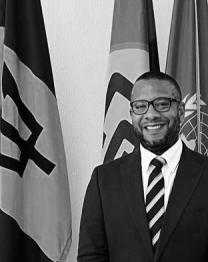
Matthew Wilson
Speech speed
158 words per minute
Speech length
2052 words
Speech time
780 secs

Poul Hansen
Speech speed
140 words per minute
Speech length
1488 words
Speech time
635 secs
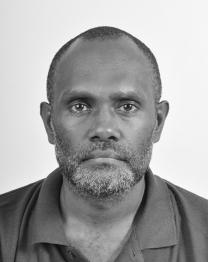
Stanley Trief
Speech speed
156 words per minute
Speech length
1037 words
Speech time
400 secs

Victoria Tuomisto
Speech speed
158 words per minute
Speech length
1476 words
Speech time
560 secs
In today's ever-changing landscape, the necessity to combat climate change intersects with sustainable trade facilitation. NTFCs need to leverage the digital economy and innovative technologies to reduce the carbon footprint in international goods transportation.
Drawing from the garment and footwear sectors, this session will discuss circular economy principles, traceability, policy recommendations, and the role of digitalization in enhancing ESG monitoring. From a global perspective, this session fosters collaboration and innovation towards a more sustainable future.
Subtopics
- Political Commitment
- Technical Assistance for NTFCs in Climate Mitigation
- Transitioning to Circular Value Chains for Climate Resilience
- Traceability and Transparency
- Effective Instruments for Sustainability and Climate Mitigation
- Innovating ESG Monitoring for Sustainable Trade
- Sharing Best Practices for Climate Action Across Borders
Programme
Moderator:
- Matthew Wilson, Ambassador and Permanent Representative of Barbados to the United Nations Office and other International Organizations in Geneva
Speakers:
- Ingrid Zabaleta Chaustre, Regional Executive Assistant, +Cotton Project, Food and Agriculture Organization of the United Nations (FAO)
- Victoria Tuomisto, Trade Facilitation and Policy Adviser, International Trade Centre (ITC)
- Stanley Trief, Manager, Vanuatu Electronic Single Window (VeSW), Vanuatu Department of Customs and Inland Revenue
- Poul Hansen, Chief, Trade Facilitation Section, UNCTAD
- Kevin Bishop, Associate Information Management Officer, UN-CEFACT, United Nations Economic Commission for Europe
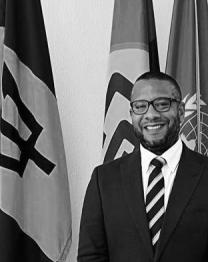
Matthew Wilson is the Ambassador and Permanent Representative of Barbados to the United Nations (UN), World Trade Organization (WTO), and other international organizations in Geneva. Ambassador Wilson has more than 25 years of experience in trade and development.
He is the Chair of the WTO Working Group on Micro-, Small-, and Medium-Sized Enterprises (MSMEs), Co-Convenor of the WTO Plastics Pollution Dialogue, Coordinator of the Geneva SIDS Ecosystem and coordinator of the ACP in Geneva. Prior to this he was Chief of Special Projects and Chief of Staff at the International Trade Centre (2013–20), Senior Adviser to the WTO Director General (2011–13), and Deputy Aid for Trade Coordinator at WTO.
He has degrees in Psychology and Sociology; International relations; Development Studies; and an MBA-Essentials. He is on the Boards of the International Gender Champions; UNCTAD’s ASYCUDA; and the Forum on Trade, Environment & the SDGs (TESS).

Ingrid Zabaleta currently serves as Regional Executive Assistant of the +Cotton project, an initiative of the Brazilian government and FAO for cotton producing countries in Latin America.
She has more than 13 years of experience in strategic management and mobilization of alliances for the integration of the agro-textile-clothing and sustainable fashion sector in Latin America, with a focus on the sustainability of the cotton supply chain.
Ingrid is a sociologist from the National University of Colombia. She holds a Master in International Relations and a Master in Decentralized International Cooperation, both from the University of the Basque Country- UPV; and an MBA from the Alberto Hurtado University of Chile.
Victoria Tuomisto is a trade facilitation and policy adviser at the International Trade Centre. Since 2016, she has conducted ITC's technical assistance programmes towards the implementation of trade facilitation and policy reforms, notably the WTO Trade Facilitation Agreement, in Africa and Asia, with a focus on regional integration. Victoria also manages the editorial development of ITC's trade facilitation and policy for business section.
Prior to joining ITC, Victoria worked as an editor and analyst for The Economist Group, where she managed research projects on industry, economics and business topics as well as forecasting for emerging markets across Europe, the Middle East and Africa. She holds an MSc in Political Economy and a BSc in Economic History from the London School of Economics.
Stanley Trief is currently the Manager of the Vanuatu electronic Single Window (VeSW) Project. The VeSW Project is funded by the Enhance Integrated Framework (EIF) and the Australian Government with support from the Vanuatu Government. Using ASYCUDA World as the system’s platform, the VeSW Project commenced in 2019.
Prior to managing the VeSW Project, Stanley was the Manager of Vanuatu’s ASYCUDA World Project from 2016 – 2018. The Project was to upgrade the Customs system in Vanuatu from ASYCUDA++, which Vanuatu was using since 1999, to the latest version of ASYCUDA.
Stanley is a customs manager by profession, managing the Customs Border Control and Enforcement unit of Vanuatu Customs from 2011 to 2015. He is also a qualified Computer Science graduate and was managing the Information, Communication and Telecommunication unit of Vanuatu since 2004 prior to moving to Customs operations.
In the Pacific region, Stanley has conducted multiple Customs modernization assessments in Pacific Island countries since 2006 to 2019, before the borders closed due to the pandemic.
Stanley holds a Bachelor of Science from the New Zealand University of Waikato and a Master of International Customs Law and Administration from the Australian University of Canberra. He is passionate about implementing reform and modernization initiatives in both Customs and in the areas trade of facilitation.

Poul Hansen is responsible for the Trade Facilitation portfolio at the United Nations Conference on Trade and Development (UNCTAD).
Poul has extensive experience in the area of trade and transport facilitation, having worked for more than 20 years in the UN system on issues such as international trade, transportation, transit, development, international standards, previously working at the UNECE as Secretary for the TIR and International Harmonization Conventions etc.
Prior to joining the UN, Poul worked for more than 10 years in the private sector in public affairs, management consulting and logistics, including with Ernst & Young. Poul has studied both master and bachelor levels in Business Administration and International Law from the Aarhus University and Copenhagen Business School, Denmark.
Poul is a certified freight forwarding agent.

Kevin Bishop is a digitization expert with a diverse professional background encompassing information management, communication technology, and academia. He holds pivotal positions in shaping global standards and propelling digital transformation.
Serving as the Associate Information Management Officer at the United Nations Economic Commission for Europe (UN/CEFACT), Kevin acts as the focal point for the methodology and technology domain. In this role, he oversees vital initiatives and upholds essential data standards.
Moreover, Kevin is entrusted with maintaining the UN/LOCODE, UN/EDIFACT, UN/CCL, and UN/FLUX. His expertise extends beyond the UN, as he also fulfills the role of Secretary for the UNECE/ISO TC 154 JWG 9, contributing significantly to the harmonization of standards in international trade and technology.
Kevin's influence resonates across various platforms, where he participates in the EU Special Data Project Group and the EU MSP (Multi-stakeholder Platform) on ICT Standardization. In these capacities, he promotes collaboration and coherence in ICT standards, ensuring seamless interoperability and enhanced efficiency in global digital systems.




